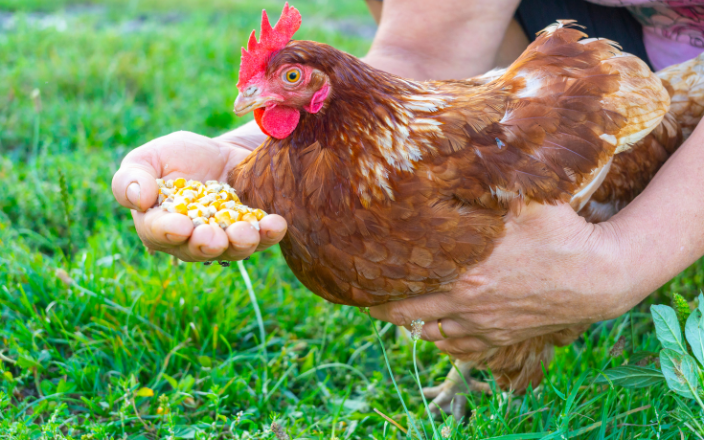The poultry industry is a vital component of global agriculture, providing essential protein sources to millions of people. However, the importation of cracked corn, a common feed ingredient, poses significant health risks to poultry. These risks can have far-reaching consequences for both poultry health and the economic stability of the industry.
Mycotoxin contamination
One of the primary concerns with importing cracked corn is the potential for mycotoxin contamination. Mycotoxins are toxic compounds produced by certain types of fungi that can grow on grains like corn. These toxins can remain hidden or masked, making them difficult to detect with standard testing methods. When ingested by poultry, mycotoxins can lead to a range of health issues, including reduced feed efficiency, impaired growth, weakened immune systems, and damage to internal organs. Chronic exposure to mycotoxins can also increase mortality rates and reduce overall productivity in poultry farms.
Nutritional imbalance
Cracked corn, while a popular feed ingredient, is not nutritionally complete. It is low in essential nutrients such as protein, calcium, and omega-3 fatty acids, which are crucial for the health and productivity of poultry. Relying heavily on cracked corn can lead to nutritional imbalances, resulting in poor egg production, weaker bones, and overall poor health in chickens. To mitigate these risks, it is essential to provide a balanced diet that includes a variety of feed ingredients to meet the nutritional needs of poultry.
Pathogen introduction
Another significant risk associated with importing cracked corn is the potential introduction of pathogens. Corn can be a carrier of various bacteria, viruses, and parasites that can infect poultry. These pathogens can cause diseases that spread rapidly through flocks, leading to high mortality rates and significant economic losses. Ensuring that imported cracked corn is free from harmful pathogens requires stringent testing and quality control measures at both the source and destination.
Economic impact
The health risks associated with importing cracked corn can have severe economic implications for the poultry industry. Outbreaks of diseases caused by contaminated feed can lead to costly veterinary treatments, increased mortality rates, and reduced productivity. Additionally, the loss of consumer confidence in poultry products can result in decreased demand and lower market prices. To protect the industry, it is crucial to implement robust import regulations and quality assurance protocols to ensure the safety of feed ingredients.
Mitigation strategies
To mitigate the health risks of importing cracked corn, several strategies can be employed. First, routine monitoring and testing of feed ingredients for mycotoxins and pathogens should be mandatory. Second, proper storage practices must be followed to prevent fungal growth and contamination. Third, incorporating mycotoxin binders and detoxification methods into feed formulations can help reduce the impact of mycotoxins on poultry health. Lastly, educating poultry farmers about the importance of balanced nutrition and safe feed practices is essential for maintaining healthy flocks.
In conclusion, while cracked corn is a valuable feed ingredient, its importation poses significant health risks to the poultry sector. Addressing these risks through stringent quality control measures, balanced nutrition, and effective management strategies is crucial for safeguarding poultry health and ensuring the sustainability of the industry.
Sources: Available upon request

